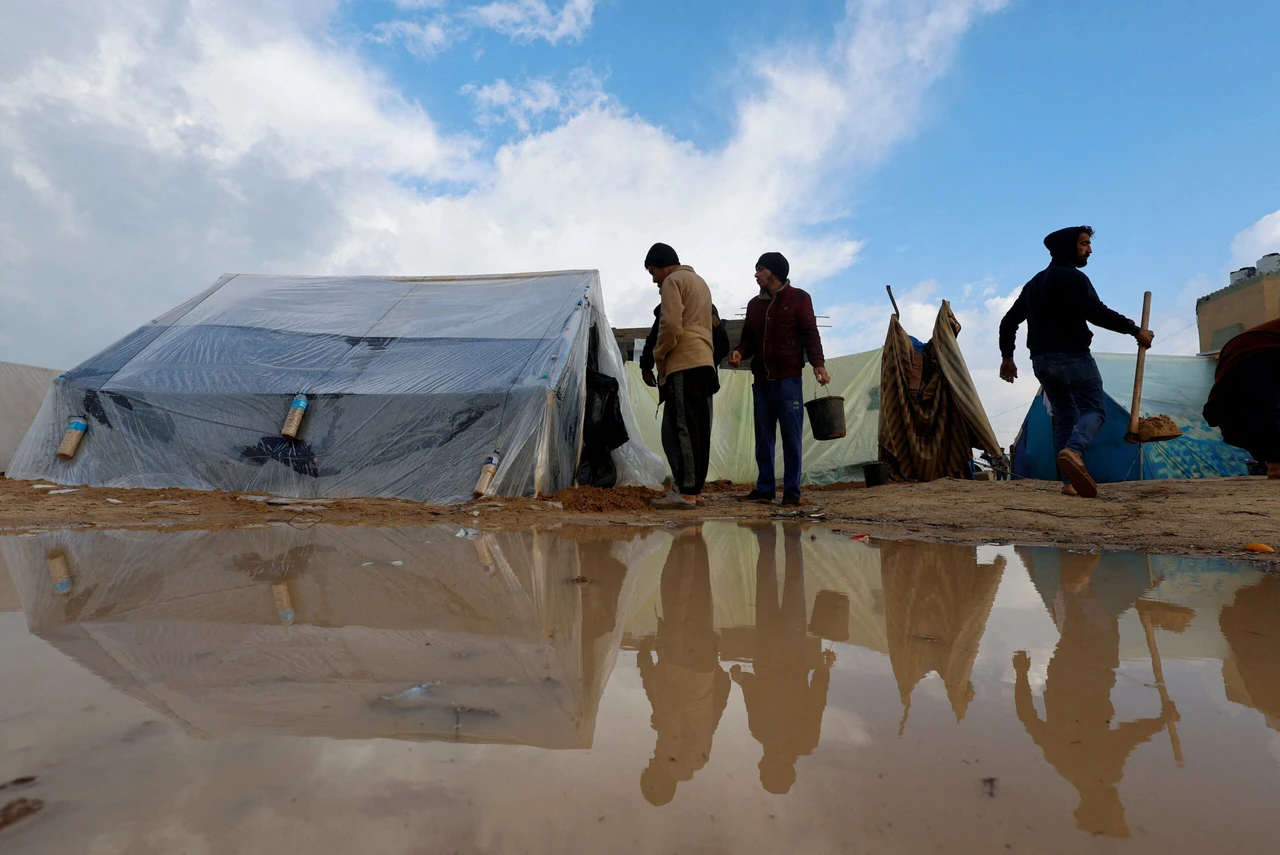Fuel shortage halts wastewater stations in Gaza, over 700,000 at risk of health crisis
 Displaced Palestinians, who fled their houses due to Israeli strikes, walk next to tents following heavy rains at tent camps, as the conflict between Israel and Hamas continues, in Rafah, in the southern Gaza Strip December 13, 2023. (Reuters)
Displaced Palestinians, who fled their houses due to Israeli strikes, walk next to tents following heavy rains at tent camps, as the conflict between Israel and Hamas continues, in Rafah, in the southern Gaza Strip December 13, 2023. (Reuters)
Wastewater pumping stations in one of Gaza’s main cities stopped working Tuesday because fuel had run out, the local authority said, expressing fears that the disease could rapidly spread.
Tens of thousands of people displaced by the Israel-Hamas war have sought shelter in Deir al-Balah, and city authorities said more than 700,000 people could be at risk from a “health and environmental crisis.”
“Deir al-Balah municipality announces the halt of water waste pumping stations because stocks of fuel necessary for their functioning are exhausted,” said a city statement.
It predicted that “roads will be flooded by wastewater,” and “diseases will spread.”
Gaza has had no electricity supplies since the Oct. 7 Hamas attacks unleashed the war on Israel. The fuel-powered waste plants treat water that is then put into the Mediterranean.
“Nineteen pits and two large reservoirs are unusable in Deir al-Balah,” Ismail Sarsour, an official with the city’s emergency committee, said before releasing the statement.
He said the stations handle wastewater for more than 140 points of shelter where tens of thousands of people have taken refuge.
The Palestinian Authority’s water department, the PWA, which is based in Ramallah in the occupied West Bank, said recently it had arranged for tens of thousands of liters of fuel to enter Gaza.
But Palestinian experts said the water crisis is so deep that fuel alone would not help. Sarsour and the experts also said there was a critical shortage of spare parts to repair damaged infrastructure.
Israel said this month that, with help from the U.N. children’s agency UNICEF, it has connected one desalination plant in southern Gaza to its electricity network. It is unclear if the plant has started working.
On Tuesday, the Palestinian Authority also said it expected electricity supplies to start again in central Gaza in the “coming days” to power and public infrastructure. Israeli authorities have not confirmed the move.
Israel’s military offensive since Oct. 7 has killed at least 38,713 people, mostly civilians, according to figures from Hamas-run Gaza’s health ministry.
The war began with Hamas’s unprecedented attack on Israel, which resulted in the deaths of 1,195 people, mostly civilians, according to an Agence France-Presse (AFP) tally based on Israeli figures.



